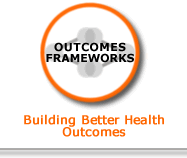Rationale
There is no highly processed evidence in the health sector on effective interventions to achieve learning and skills development. The Foresight Mental Capital and Wellbeing Project report on learning through life[1] proposes a model of life long learning which suggests that learning will contribute to skills and competencies (self-concept, self-efficacy and resilience), social interactions and qualifications.
On the basis of epidemiological evidence, primary research and expert opinion, Foresight [2] put forward a number of suggestions which could contribute to learning and skills development at an individual and population level for adults. These include: stimulating the demand for skills; the provision of basic skills development programmes for those with poor literacy, numeracy and English; raising individual and employee demands for learning; and, implementing strategies to empower working age and older populations to learn and develop skills
Source
-
Dewe, P. and Kompier, M (2008). Foresight Mental Capital and Wellbeing Project. Wellbeing and work: Future challenges. The Government Office for Science: London..
-
Foresight Mental Capital and Wellbeing Project (2008). Final Report. The Government Office for Science, London.
|



